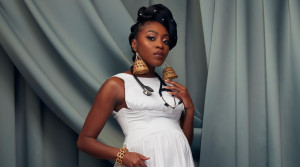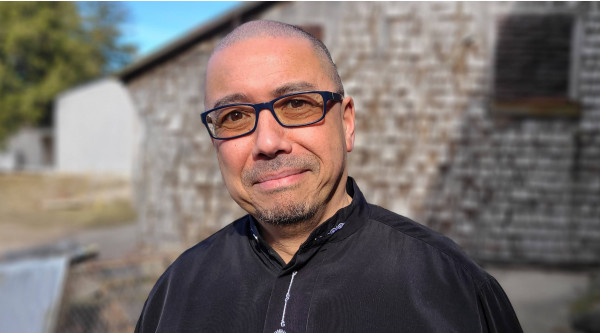I was raised by a white mother who didn’t teach me that I was Black. On the contrary, she seemed to insist that I was white.
I was her oldest child and, like all four of her biological children, I have a Black, Ghanaian father. Yet, unlike my mother’s other children, it seems like I was singled out and made to feel that I was not really Black—that I was designated to relive my mother’s own legacy of trauma—to be the awkward, nerdy, uncoordinated, white one.
I remember being driven home down a country backroad from the psych unit, after experiencing a psychological break in the summer of 2016.
It was a long and sumptuous drive and a much-needed escape from the oppressive and constraining psych unit. As I took in the green and golden beauty of a late prairie afternoon on the outskirts of Calgary, my soul felt oddly tender. How easy it was to fall for this place. How bittersweet a moment it was.
My younger sister asked my mom, “Why is Wendy so whitewashed?”—Wendy being my name at the time.
“It’s not her fault!” my mother intoned. “She grew up in a very white place and I should have moved us all to Calgary instead of just doing whatever Grandpa wanted.”
I was shaken out of myself by my mother’s response —I hadn’t realized that my mother would just accept my sister’s clearly lighthearted mocking of my racial presentation as indicative of any sort of real problem that I might have.
In retrospect, my mother’s acceptance of my sister’s labelling of me as “whitewashed” shouldn’t have been all that surprising, given how she raised me and how she supported my whitewashing by so many others all my life.
Looking back on the mystery of what went differently in my life, compared to the lives of my other siblings, there were signs that I was being whitewashed when I was a small child. For all I know, the whitewashing may have begun the moment I was born, red and wrinkly with blotches of purple pigment.
My mother decided not to teach me the terms Black and white when I was little. I was taught that some people had pink skin and others had brown skin. I never even learned about the existence of a Black racial identity until my mom married a white chauvinistic wannabe-cop–child-predator (her second husband), who taught me the N word when I was in the third grade and would sing “Dixie” to me.
Before I was pre-school aged, my family used to compare me, the oldest child in the family, to the second oldest who, unlike me, did not present as racially ambiguous. My sister “looked Black.” Ever since she was a toddler, they would call her a bull-dozer, a rebel, attitudinal, a ham. They acted as if she had some sort of irrepressibly bombastic personality before she could even say “Mommy.”
I grew up in a small, rural-adjacent, predominantly far–right–voting, white-flight community just outside of Calgary. It was in this community that I spent my early childhood, roughly two years after I was unexpectedly conceived. My disgustingly wealthy—but dearly beloved—now-late grandpa, who financially supported us throughout my childhood, had always insisted that we stay nearby in that small white community.
In that place, I was frequently held in contrast to my sister by numerous white folks who lived there. In many instances, the comparison was implicit, but when two distant white woman relatives visited from overseas, I received an important clue that would shine a light on the difference that white people—and especially white women—saw between my sister and me. These differences were not purely phenotypical. This was affirmed for me when, near the end of their visit, these white women relatives recorded profiles of the perceived personality traits of my siblings and me to take home with them and remember us by.
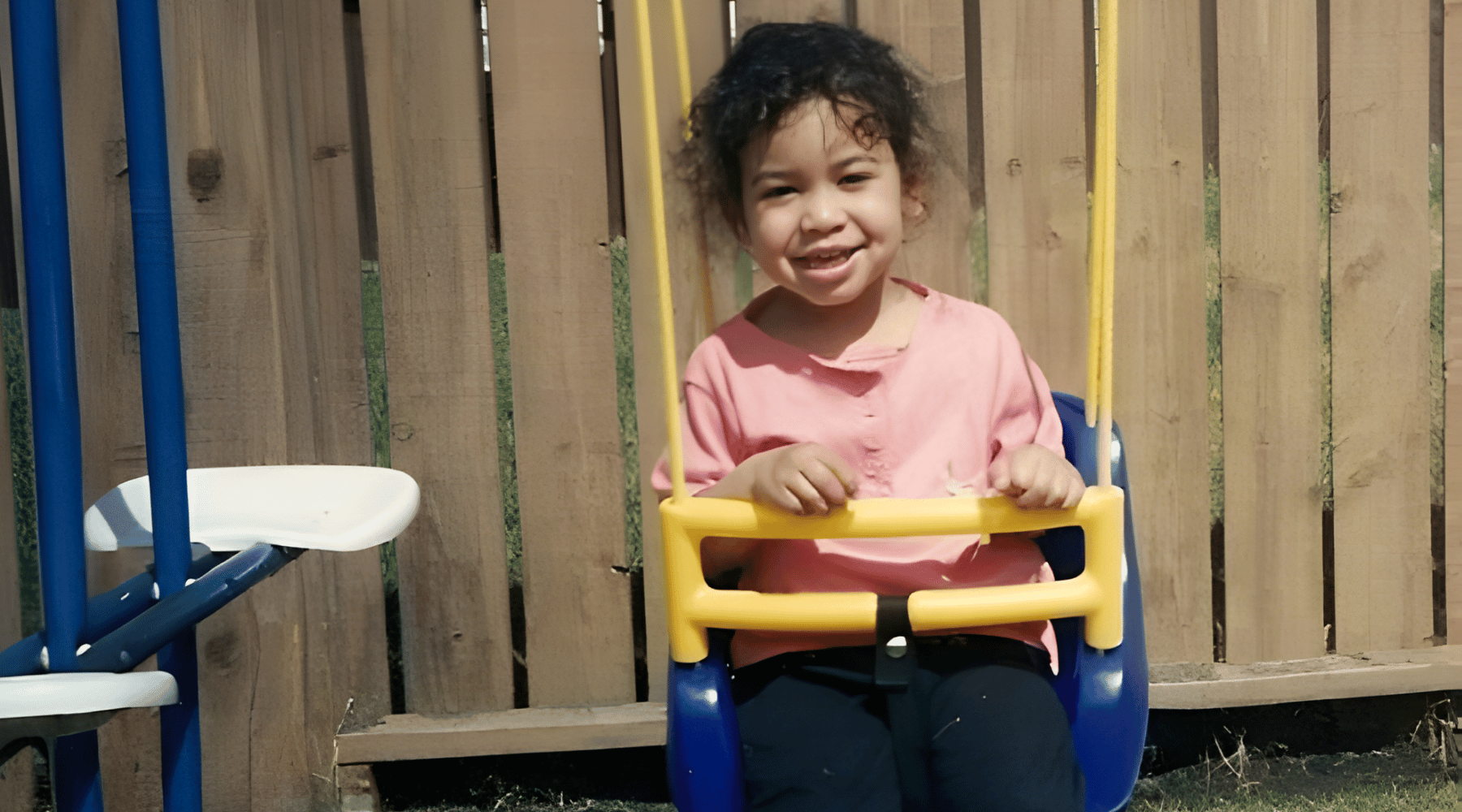
Me as a toddler growing up outside Calgary.
They described my sister as a tomboy who is “athletic” and me as “good,” “quiet” and “feminine.”
I didn’t like being pigeonholed in this way, and so when they asked me what I wanted to be when I grew up, I said, “a marathon runner.”
This was not the first time I had been held in contrast to my sister in a typological dichotomy, but it was one of the most telling instances.
Earlier in my elementary school career, my mother began taking an interest in child psychology and found a book about identifying personality types among children. According to her assessment, my sister was “active,” while I was “thinking.”
Decades later, when I reconnected with a white woman music teacher who had taught me during my elementary school years, I would hear this dichotomy echoed again, as she confessed that she had always had a special fondness for me, because, in contrast to my “hyper,” “wild” and boisterous sister, I was “thoughtful,” sensitive and “intelligent.”
For me, this comment harkened back to a time when my mother let me in on a little secret. When I was in grade five, my mother told me I was the kind of student my fifth grade white teacher would like, because I was quiet and good like a white blonde student whom my mother wanted me to befriend. She admitted to me that she knew that my sister was not the type of kid that this white woman teacher, who had never met my sister, would like—because my sister is strong-willed, tomboyish and rascally.
My mother’s theory would be proven right when, during a choir meeting the following year, that white woman teacher would call my sister up to the front of the room to teach everyone hip-hop dance moves. I remember standing there awkwardly in silence, knowing why I had not been asked to teach hip-hop dance to the class, and why my sister, who had never expressed an interest in hip-hop, was being called up.
An unhealthy rivalry was fostered between my sister and me going as far back as I can remember. Everyone wanted to touch her hair and acted as if she was so funny. By contrast, my hair and my personality seemed to be regarded as ordinary. I couldn’t help but feel like I was boring.
Back then, my mother always compared my sister to one of our uncles, whom she seemed to see as a funny rebel. I remember being scolded once by my mother for “trying to get attention” when she and some guests revelled in my sister’s clowning. I had also tried to act silly and partake in the show.
After that, I never tried to clown around for my mother and her guests again.
My mother pressured me to fit in with the white popular crowd. And it granted me a sort of insider status that my siblings weren’t supposed to experience. For a while, this insider status had me convinced that there was not a white person in existence who was not hiding an egregious racist side. I saw the monstrous underbelly lurking beneath white civility’s everyday, pink-lipped smile. It nearly swallowed me up.
I never really was able to fit in with white people, but during the years of trying, I got to sample the gamut of white-flight–Canadian hate.
I encountered everything from the blonde-haired, blue-eyed middle school girls who used to “heil Hitler” and throw up “sieg heils” as a “joke,” to the blonde white girls in my middle school Home Economics group, who used to make me wash the dishes and refused to share cookies with me, to the blonde young woman in my high school, whose appearance I had secretly admired until one day when she went off on a rant about all the things she hated about Black people, within meters of me, while I sat there, studying quietly, in the rotunda during my spare.
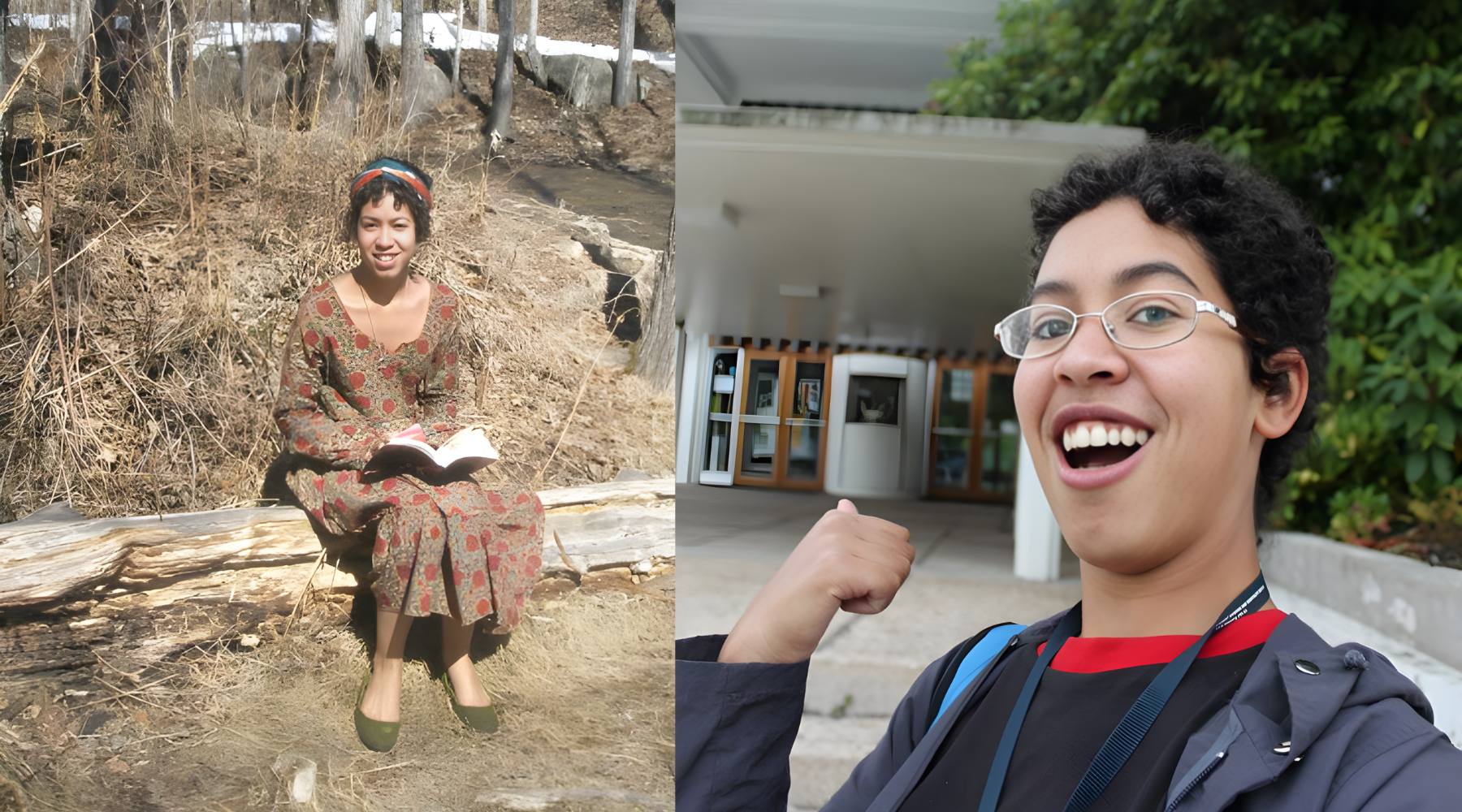
On the left: me in high school. On the right: Me after getting accepted to university.
This is not the beginning or the end of the racial trauma that I have experienced due to my proximity to whiteness. But I stayed quiet for a long time. I never felt good about going along with racism or keeping quiet about it. When exposure to other global majority folks in my university years empowered me to consciously take space from white people, it was like my spirit was lifted back up and into myself from the floor to carry me forward with new verve and liberatory laughter.
To this day, I don’t trust most white people. It seems that most of the time, they enjoy finding ways to test me and get under my skin so that, in the next breath, they can call my Blackness into question.
This is particularly distressing for me because I have borderline personality disorder, and I experience such invalidating violence as profoundly unravelling every time I encounter it.
What is worse, however, is that many Black folks I meet don’t seem to trust me. I never learned how to express my Blackness with the kind of legibility that my younger sister did. When other Black folks meet her, they tend to really get along with her and believe her regarding her experiences and identity. In contrast, I have had countless interactions in which I have been met with suspicion and hostility. It is as if other Black folks can tell what kind of a child I used to be.
I don’t dance or listen to music and when I see a basketball I want to run the other way. When I hear hip-hop music, I stiffen. All this foolishness is me trying not to look or feel awkward in a way that might unravel me and send my thoughts spiralling for the rest of the day. I know that there is more to being Black than music, dance and basketball, but all of these facets of being are now tinged with my trauma, in my mind’s sight, by a mother who wanted to make me feel nerdy and awkward like in the way that she understood herself to be.
Nothing chased me out of my body like the bullying I faced from my mom’s white second husband—the creepy blaccent-sporting wannabe–cop elementary-school-teacher with whom she was involved during my elementary school years, and who sexually abused me. He used to tell me I was white all the time to make fun of me.
On different occasions, in his bedroom, where we typically hung out—whether my mom was there or not—he would tell me to dance for him, saying he’d bet I was the whitest dancer ever.
I am still mortified of dancing to this day—especially of any dance that involves movement of the hips or butt. Put me on the dance floor and play hip-hop music, and I’m deadwood.
Woefully, I’ve learned to avoid in-person Black spaces for the most part because I do not want to trigger my rejection-sensitive dysphoria (RSD). I am so afraid of rejection that I often avoid get-togethers entirely and have missed many opportunities to find community.
I hardly leave my house because I’m triggered by the voices of white women who speak with a distinctly white affectation. Whenever I hear white women laughing, I believe that they are laughing at me. I also never know what to do when another Black person passes me on the sidewalk. In my first few years of university, Black men housemates would greet me with a slight smile or wave when they passed by. I had also seen Black men greet my dad when I was younger, and he explained to me that that is what Black folks do. I have been greeted in this way when I am with other Black men, too.
But I look in the mirror, and I see a racially ambiguous person. Why should I expect a greeting from Black folks who pass me by out in the world when I don’t even look that Black?
However, averting eye contact is awkward. It seems that I can’t get over the traumatic conditioning that influences me to check my phone, stumble, sniffle and wipe my nose, or give other weird and probably hurtful cues. This has been a major reason I have been isolating myself since awakening to my suppressed identities in 2015, when I experienced my first psychotic break.
I’ve barely shared any of these experiences with white clinicians because I don’t trust them and I’ve just only started sharing some of them with my Black counsellor. For the longest time, I worried that sharing such experiences with my counsellor who is dark-skinned would hurt or traumatize her.
Living in Canada among so many white folks, I feel like a mouse trapped at a dinner party. It’s like I am always hiding at the edges, scampering about—looking for places to hide and the right moment when the coast is clear to make each move. I am never at ease.
I know that there is hope for me to unlearn this timidity, hypervigilance and awkward conditioning, to heal from my anxiety and find community and belonging. That is why I have been dreaming of moving to my paternal homeland, Ghana. That is why I consciously extricate myself from predominantly white spaces.
During my 2015 trip to Ghana, meeting a good portion of my family for the first time in my life at age 22, I immediately felt at ease and at home. My family is astounding, and I immediately connected with them. As cheesy as it sounds, it was like we had never been separated by time or distance at all. I have full confidence that, although we haven’t reunited in person in nearly ten years, our relationship will feel the same. To me, they are the definition of kindred spirits.
My white mother’s side of the family is incredibly wealthy, so it feels weird to say that for the past nine years, I haven’t felt comfortable in Canada. But for me, there is no denying this truth. It indeed feels unreasonable to name that I want to immigrate to a place that so many people are trying to leave, from a place that many of those same people would give so much to call their home. This is the toll that our gaslighting world has had on my confidence in my own understanding of my reality and the impact that white supremacy has had on my desires.
I am making serious plans for my move to Ghana, and I am ready for the journey home from this crazy-making nightmare. Talking to other Black people in Canada, I realize I’m not alone in feeling this way. My longing for belonging is not at all unique. I hope that other Black folks living in Canada can find a way out or ways to stay grounded in such an unhomely place. Ultimately, Canada is not for me, and I’m not for it.
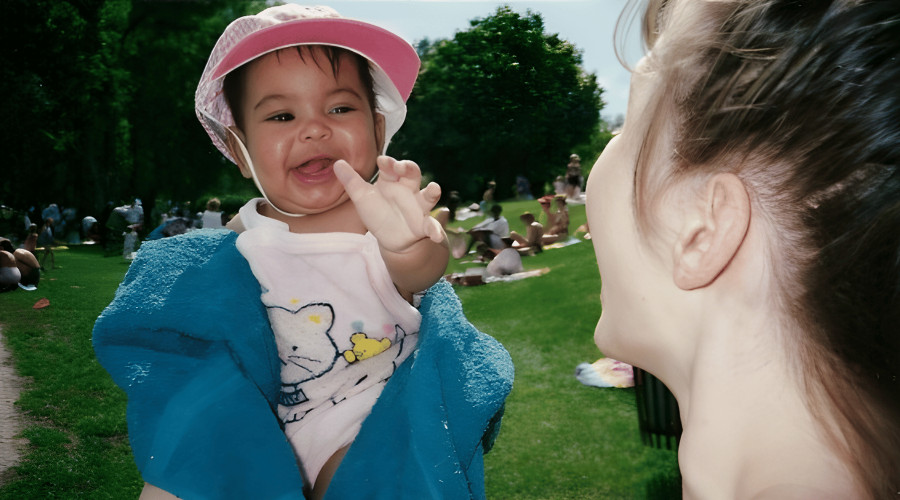
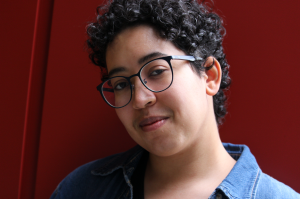 By
By 





